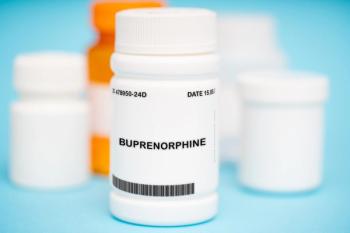
Get ready for changes in drug contracting from P4P
Hospitals should hold manufacturers accountable for their drug claims in their contracts
The next time a drug manufacturer boasts that his company's product will reduce your patients' length of hospital stay, hold him to that claim. After all, health providers are increasingly reimbursed on a pay-for-performance (P4P) basis, so it's only fair that drugmakers are held to the same standard.
When I was an administrator of pharmacy services a few years ago, our hospital attempted to contract for pharmaceuticals based on the ability of the drugs to demonstrate improvement in patient outcomes (Drug Topics, May 17, 2004). We had patient-tracking systems in place to measure clinical outcomes. Unfortunately, at that time, no one was willing to enter into a risk-sharing agreement with us.
The Centers for Medicare & Medicaid Services is moving beyond its demonstration project that uses indicators to measure hospital performance and an oncology demonstration project for physicians. CMS is about to embark on a new program called the Physician Quality Reporting Initiative (PQRI). Under this program, physicians who voluntarily report a designated set of quality measures on claims for dates of service from July 1 to Dec. 31 may earn a bonus payment, subject to a cap of 1.5% of total allowed charges for covered Medicare physician fee schedule services. This is important because many hospitals own physician office practices and implement clinical pathways or physician order sets that will help meet the quality measures. The added 1.5% will be income back to the hospital. There are currently 74 PQRI physician quality measures, ranging from "Hemoglobin A1c Poor Control in Type 1 or 2 Diabetes Mellitus" to "Empiric Antibiotic for Community-Acquired Bacterial Pneumonia."
Then there is the Value-Based Purchasing (VBP) model, planned for 2009. CMS has established a set of goals for the Medicare Hospital VBP program. Goals for the VBP program include the following:
CMS is looking to change from being a passive payer of services to an active purchaser of care. A hospital's performance will be scored using a Performance Assessment Model and the information will be made public.
CMS is also exploring specifying certain drugs for certain procedures, based on the body of evidence available. For example, for colorectal surgery, CMS is considering ampicillin/sulbactam or cefazolin with metronidazole one dose pre-op and no more than 24 hours post-op. Manufacturers that have not had their drugs approved for these procedures by CMS, even with an approved indication, are in discussions to see how they can get their product approved as one of the treatment choices. No data can be collected for measuring outcomes if the drug isn't approved by CMS to be monitored, and no payment may be received by the hospital for using nonapproved treatments.
Some hospitals may be getting paid already by private payers for submitting their quality data and using this model advocated by CMS.
Until now, hospitals have never had their drug formularies and drug utilization dictated by a third-party payer-private or government-on the inpatient side. It will take a multidisciplinary approach, including pharmacists, to sit down with manufacturers to evaluate the clinical outcomes of their products to ensure that the best treatment is being utilized to improve care and achieve reimbursement. Are you ready for this paradigm shift?
FRED PANE is senior director of pharmacy affairs at Premier Inc., a group purchasing organization based in San Diego. The views expressed in this article are his own and do not reflect the policy and practice of Premier.
Newsletter
Pharmacy practice is always changing. Stay ahead of the curve with the Drug Topics newsletter and get the latest drug information, industry trends, and patient care tips.























